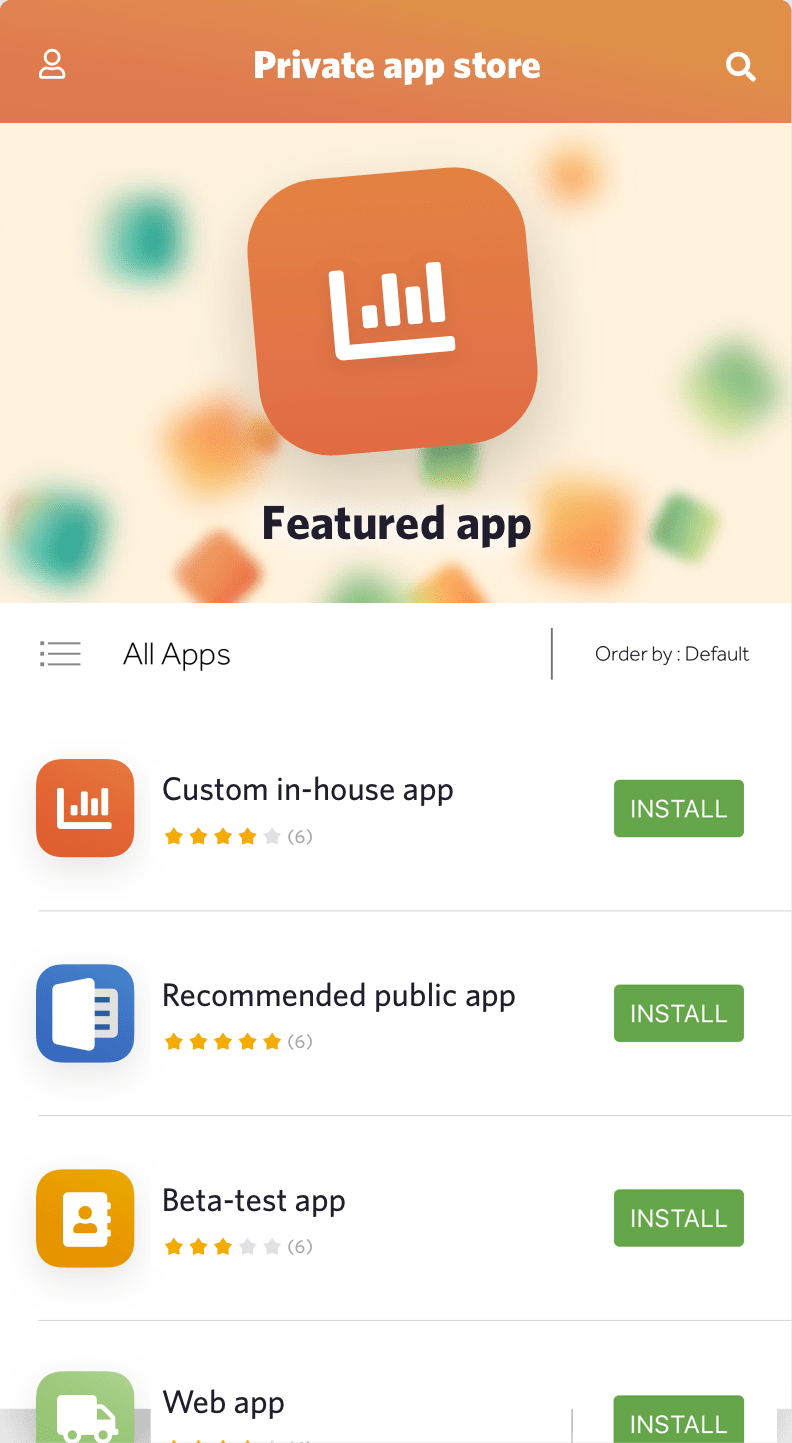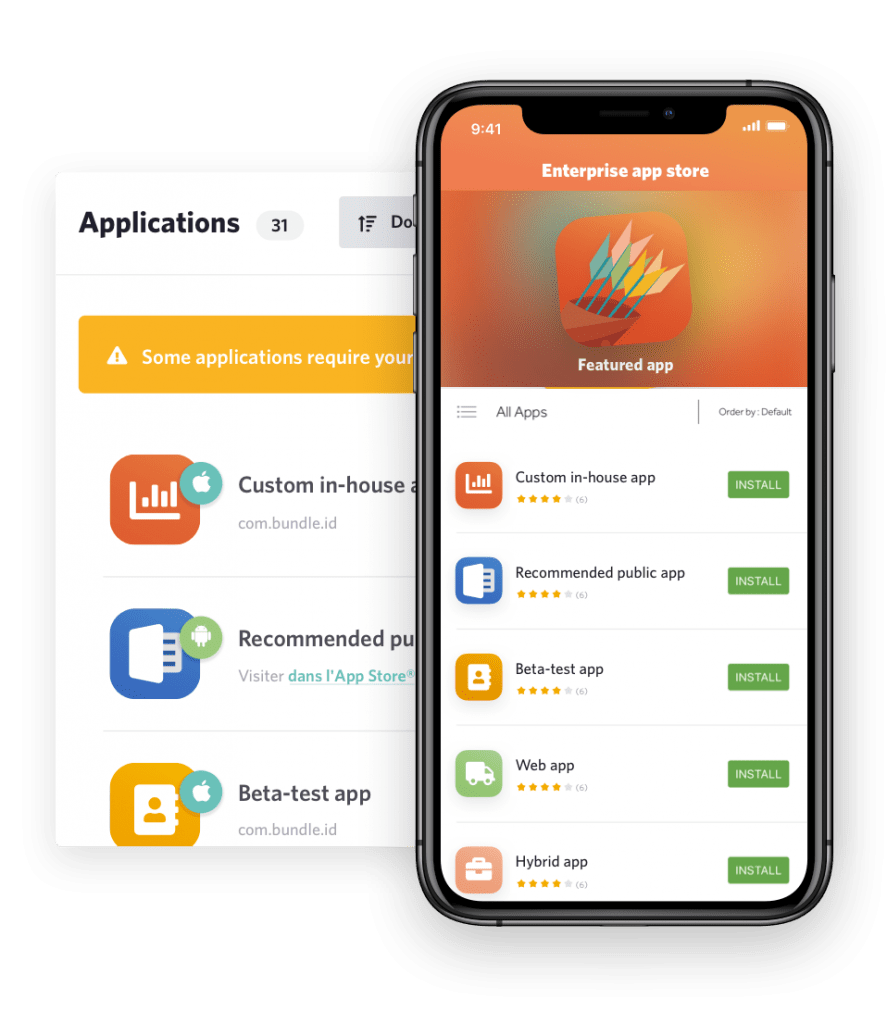What is an Enterprise App Store? Private, employees only.

An enterprise app store or a private app store is a web or native (iOS, Android or Windows) private app catalog. They are very similar to public app stores (e.g., the Apple App Store) but are private and can only be accessed by authorized users: employees, contracted workers or external users for example.
An Enterprise App Store is often a key component in Enterprise Mobility Management initiatives and comes bundled with most Mobile Application Management solutions.
Very similar to public app stores – but private – an Enterprise App Store can provide the following services:

-
Authentication
With a built-in user management solution, an enterprise app store enables administrators to manage users who should be whitelisted and invited to the store. Additionally, support for any enterprise authentication solution such as LDAP, SAML v2 or OAuth is usually available.
-
Group-level access control
As some of the apps made available might only be accessed by some users, group-level access control to apps that are published to the private app store can be defined to be restricted by user roles, subsidiary or geography.
-
Self-service app download
When deploying to a large user base, an enterprise app store is capable of letting whitelisted users join the store and download apps and updates over the air.
-
Support for multiple app sources
Apps used in a corporate context might be originating from various sources: in-house made, partner-made, publicly available or web-based. The enterprise app store should be the catalog of all mobile services used by a given business and made available to employees.
-
Versioning
As apps published for employees might evolve over time, it is important to consider app versioning support as newer versions might be tested or delivered progressively.
-
Feedback and ratings
Your employees are your customers. Let your customers know they’re being heard. Like public app stores, let employees rate your app, give feedback, and see how you perform over time and releases.
-
Deployment options
All apps don’t share the same purpose. Some should be self-service, others are core. Some need to be pushed immediately, others scheduled. A private app store solution should offer app deployment options such as mandatory/optional, immediate/scheduled.
-
App configuration
Since some of the apps listed in public app stores may require extra configuration steps from users when they first launch the app. For instance a messaging app might require the user to input the messaging server before his credentials. With remote app configuration, you can pre-configure apps that are deployed and reduce user training and time to access the app.
-
Remote wipe of corporate data & apps
An enterprise app store should be able to remove apps automatically in such events: a user leaves the company, has a change in app access rights or looses access to his device
